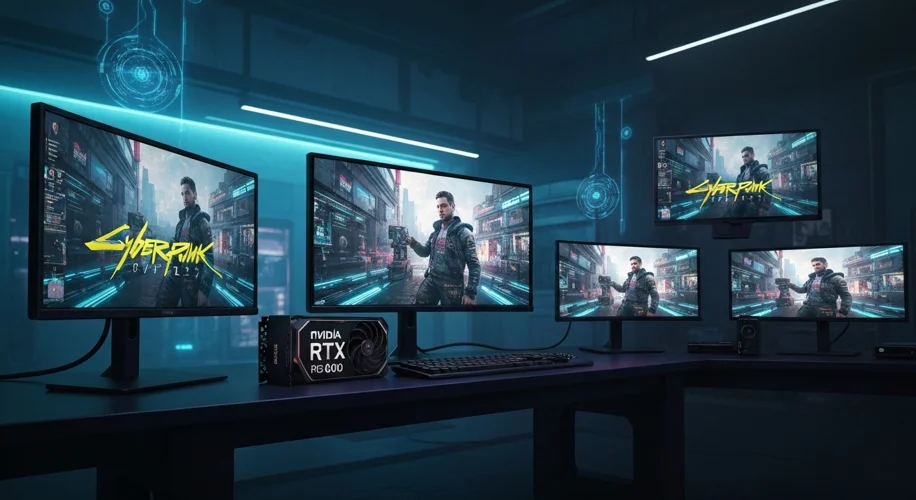Okay, so hear me out… NVIDIA just dropped some seriously cool stuff with their Blackwell RTX technology. I saw demos that genuinely made me excited about the future of gaming and how we interact with graphics.
What’s the big deal? Well, imagine playing games with graphics so real, they blur the line between the virtual and the actual. That’s the promise of neural rendering, and NVIDIA is making some serious headway.
The highlight for me was seeing the RTX PRO 6000 card absolutely crushing it. They were running multiple instances of Cyberpunk 2077 simultaneously. Think about that – not just one super-smooth, high-fidelity instance, but several at once. This means the hardware is getting powerful enough to handle incredibly complex rendering tasks, likely using AI to make it all happen seamlessly.
Neural rendering isn’t new, but the way NVIDIA is pushing it with Blackwell is a big leap. It’s basically using AI models trained on massive datasets to generate or enhance graphics. Instead of just traditional rendering pipelines, it’s like the computer is learning what realistic visuals should look like. This could lead to more dynamic environments, smarter NPCs, and visuals that adapt in real-time in ways we haven’t seen before.
For gamers, this translates directly into better performance and more immersive experiences. We’re talking about graphics that aren’t just pre-rendered or polygon-based, but intelligently generated. Imagine realistic lighting that bounces and reflects perfectly, textures that feel truly three-dimensional, and even character models that move and react with uncanny naturalness.
It’s still early days, and these are demos, but seeing a professional-grade card like the RTX PRO 6000 handle this kind of workload is a massive indicator of where things are headed. This isn’t just about making games look prettier; it’s about making them feel more alive and responsive. The potential for AI to optimize graphics on the fly, reducing the computational load while maintaining or even improving visual quality, is huge.
I’m really curious to see how this filters down to consumer cards and what games actually start leveraging this tech. If Blackwell can deliver on the promise of neural rendering, our gaming sessions are about to get a whole lot more intense. What do you guys think about the future of AI in graphics? Let me know in the comments!

